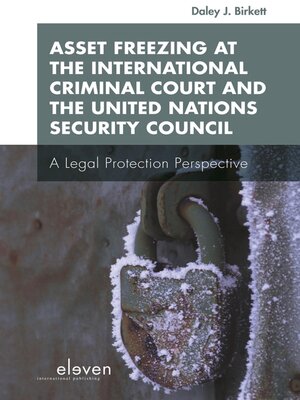Asset Freezing at the International Criminal Court and the United Nations Security Council
ebook ∣ A Legal Protection Perspective
By Daley Birkett

Sign up to save your library
With an OverDrive account, you can save your favorite libraries for at-a-glance information about availability. Find out more about OverDrive accounts.
Find this title in Libby, the library reading app by OverDrive.



Search for a digital library with this title
Title found at these libraries:
| Library Name | Distance |
|---|---|
| Loading... |
The International Criminal Court (ICC) and the United Nations Security Council (UNSC) are both empowered to request States to freeze individuals' assets. Regardless of their duration, such measures necessarily infringe upon the targets' rights. Yet, the longer assets are frozen, the more acute these infringements can become. ICC-requested asset freezes can endure from the issuance of an arrest warrant until the accused is acquitted or convicted, whereas UNSC ordered measures continue until international peace and security is restored. Asset freezes executed at the behest of the ICC and the UNSC are therefore rarely short in duration. The focus of this book rests on the two bodies' exercise of their asset freezing powers, with a particular emphasis on the legal protections available to the individuals at the receiving end of the procedures with which the ICC and the UNSC are equipped. This book will be of interest to practitioners, academics, government officials, members of civil society, and postgraduate students with an interest in public international law, especially international criminal justice and international human rights law.







